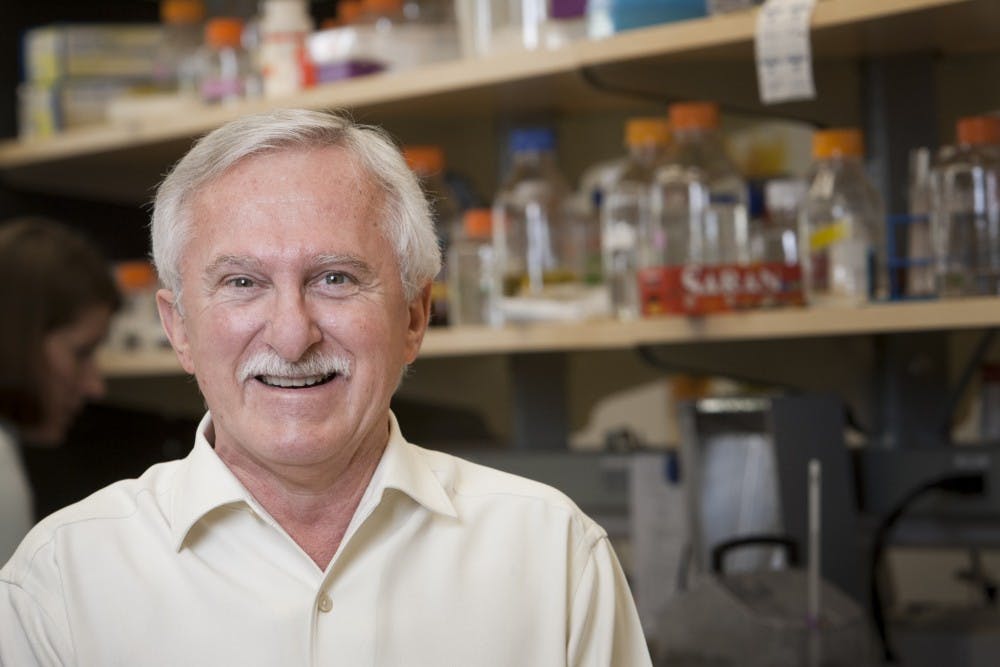Paul Modrich, James B. Duke professor of biochemistry, member of the Duke Cancer Institute and Howard Hughes Medical Institute investigator, was awarded the Nobel Prize in Chemistry Wednesday morning along with Aziz Sancar of the University of North Carolina at Chapel Hill and Tomas Lindahl of the Francis Crick Institute in the U.K.
The trio is being recognized for their advancements in the study of DNA repair mechanisms. Modrich is being honored for his contributions to the understanding of mismatch repair, a process by which errors in DNA replication are corrected.
"It's a field that for many years didn't receive the attention I think it really deserved," Modrich said in a phone interview released by The Nobel Prize Foundation Wednesday morning. "Its importance is now unequivocally established for controlling the production and mutation both in a positive and negative way."
In the interview, Modrich noted that he is on vacation in New Hampshire and planning to return Thursday. He also said that he found out about the award when he started getting emails at approximately 6:30 a.m. Wednesday.
Dr. Adam Smith, editorial director of Nobel Media, said in the interview that the awards ceremony will be held Dec. 10 in Stockholm.
The mismatch repair system that Modrich characterized has been shown to have major implications in the human body. Modrich and his team demonstrated that mismatch repair is defective in a common form of colon cancer and that malfunctioning of the pathway also plays a role in several neurodegenerative diseases.
A press release from The Nobel Prize Foundation notes that the trio's work has provided valuable information about how living cells function that can be used in developing new cancer treatments.
Modrich received his Ph.D. from Stanford University in 1973, joined the Duke School of Medicine faculty in 1976, then became a Howard Hughes Medical Institute investigator in 1994.
Modrich is now the second standing professor at Duke to win a Nobel Prize with the first being Robert Lefkowitz in 2012, who also won the Nobel Prize in Chemistry.
President Richard Brodhead sent an email to all students, faculty and staff at 11:45 a.m. Wednesday informing them of Modrich's achievement, noting that "I know you join me in celebrating this extraordinary recognition of our colleague, whose discoveries inspire us and remind us of the larger purpose of the work we do every day at Duke in teaching, learning, caring for patients, and advancing the frontiers of knowledge."
Update: This story was updated at 10 a.m. to include the interview released by The Nobel Prize Foundation and at 11:50 a.m. to include the information about Brodhead's email. Check back for updates on this developing story.
Correction: An earlier version of this story stated that Modrich became a researcher in 1994 without specifying that was when he became a Howard Hughes investigator. The Chronicle regrets the error.
Get The Chronicle straight to your inbox
Signup for our weekly newsletter. Cancel at any time.

